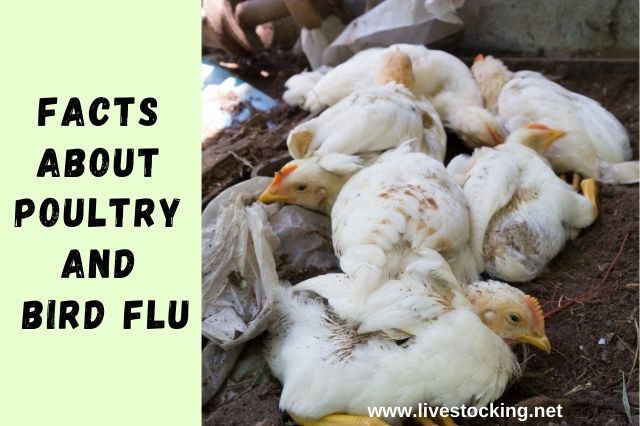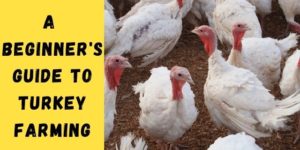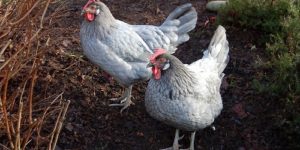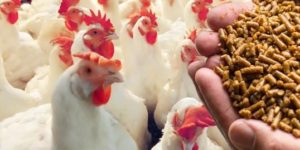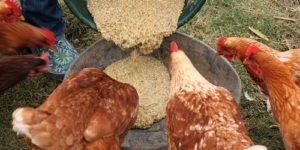There was a period of about a year back in the mid-2000s when we were hearing an awful lot about the bird flu disease. In many ways, it was quite similar to what’s been going on this past year with Covid-19.
It started in Asia and it would cause widespread panic around the world, leading to a number of different precautions. There are multiple differences this time, of course, what we’re dealing with right now is more serious to humans, but Avian Flu was a big deal in 2004.
Nowadays, we don’t hear so much about it, but that’s not because it’s gone anywhere. Avian flu is still very much around and it’s something that is important for farmers and anyone who keeps poultry to be clued in on.
If the flu finds its way into your birds, they are at serious risk. It’s extremely dangerous and also highly infectious among birds and so you could be looking at widespread illness and death among your flock.
Let’s consider some important facts:
1. There Are Multiple Different Strains
Like most kinds of influenza, when we say Bird Flu or Avian Flu we aren’t referring to one specific strain, but it is in fact more a blanket term that covers a collection of different individual viruses.
It’s categorized as Influenza A, which is a zoonotic infection that has a natural reservoir found almost entirely in birds. The different strains are identified as H5, which was the one that we were dealing with in 2004, H7 and H9.
Each of these three different types has a variety of subtypes and each of them varies in their severity, but they are all potentially fatal for poultry, with H5 being the one that humans are most likely to suffer from.
2. It Rarely Spreads Between Humans
Unlike Covid-19 and the Swine Flu, which was also pretty prominent among humans for a little while in the 2000s, Avian Flu is not every infectious between humans. It is highly infectious among poultry, but the person-to-person spread is rare.
There have only been three documented cases of it occurring in history and the likely reason is that the virus has not adapted to the differing immune systems that humans have in relation to birds. So this is not something that we need to be concerned about.
3. It’s Not Easy To Catch
In addition to the fact that the Avian Flu spreading from one person to another is highly uncommon, it’s actually very difficult for humans to catch it from birds. In spite of all the panic back in 2004, it’s a rarity.
Contrary to what we believed back then, you almost certainly won’t get it from eating the meat of an infected bird, and even if you are among infected, living birds you probably aren’t going to end up catching it.
You should keep an eye out for potential symptoms, but it is much less likely than we originally believed.
4. It Affects Over 100 Different Types of Birds
Bird flu has its origins primarily in waterfowl, so ducks, geese and swans, and from them it can spread to poultry, but there have been cases in a variety of other different kinds of birds too and we should air on the side of caution.
It is unlikely to affect the likes of crows and sparrows, but all it would take was one, which could then potentially spread it to your birds. I would suggest that if you have poultry, take steps to keep other birds at bay.
It’s just a matter of precaution but it’s worth doing for sure if you want to keep your poultry as safe as possible.
5. The Key to Prevention is Biosecurity
With that in mind, preventing the virus from infecting birds in the first place is a more logical approach than trying to treat it when it happens, and so you should be practicing as much biosecurity as you can.
Keeping other potential carrier birds away is good, but it can also be spread by rodents and insects if they’ve been in contact with infected waterfowl so initiate some pest control as a cautionary method too.
And then of course be sure to keep your bird-housing facilities clean and disinfected because, like most strains on influenza, Avian Flu won’t survive that.
6. Regular Flu Vaccines Won’t Prevent It
Vaccinations against influenza are pretty widespread for humans now and it’s recommended that most of us make avail of them as we get into the colder months, but it’s important to know that they won’t protect you from Avian Flu.
It’s a different kind of disease, so if you are someone who works with poultry, don’t assume that your regular flu vaccine is going to keep you safe from the possibility of catching Avian Flu.
7. It’s Not Going Anywhere
We touched on it a little bit earlier, but the fact is that not many people are even aware of the existence of Avian Flu, and even a lot of those who are, probably believe it’s a thing of the past. That’s not the case, and it likely never will be.
Influenza is not something that is ever going to be easy to eradicate and your poultry is always at some level of risk. Don’t assume that because knowledge and concern over Avian Flu is no longer widespread, that it’s gone away. Make sure you know what you’re dealing with.
Always remember that Avian Flu is really not that common and that your poultry probably won’t be affected by it, but also be aware that that in many ways can make it dangerous, because people don’t bother getting educated about it.
So keep your birds safe by knowing the risks and the dangers and ensuring that you keep yourself up to date and educated on what’s going on with Avian Flu.
